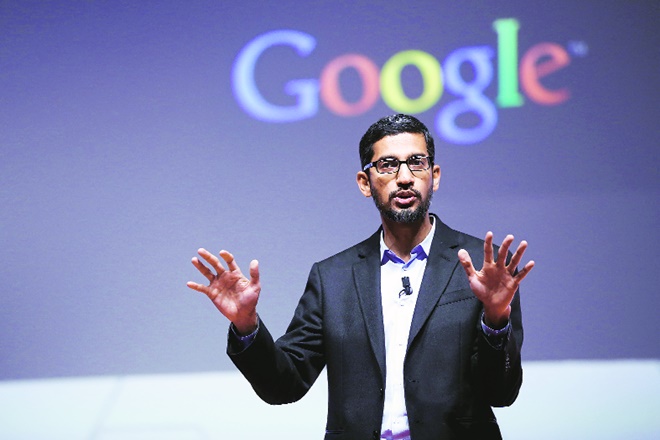First it was “don’t be evil”, then it was “do the right thing”.
It appears Google staff members aren’t too sure whether their employer is living up either of those much vaunted, but admirable, principles with its work for the US Department of Defense.
At issue is the latter’s Project Maven. It is using the company’s open source artificial intelligence system TensorFlow to analyse footage captured by army surveillance drones and highlight what may be of interest for human review.
It’s a pilot project sparked by the fact that there’s too much footage for personnel to practicably scan, but one which has prompted more than 3,000 Googlers to take the time to sign a letter to boss Sundar Pichai stating that their company “should not be in the business of war” and requesting that the project be dropped.
The company’s says it has long worked with government agencies to provide “technology solutions” and that the tech is not used for offensive purposes.
But what if the lines get blurred? That’s what is presumably worrying them at a time when the debate over the use of AI for military purposes is getting increasingly hot.
Before the emergence of the Google letter, AI researchers from nearly 30 countries, including the US, the UK and China, had signed one of their own, pledging to boycott a South Korean university over concerns that its partnership with a defence company could lead to the creation of killer robots.
More than fifty academics said they would not work with KAIST – formerly Korea Advanced Institute of Since & Technology – until such time as the President of the institution “provides assurances, which we have sought but not received, that the center will not develop autonomous weapons lacking meaningful human control”.
Both missives come amid increasing scrutiny of tech companies, what they are developing, and what it is being used for.
Against that backdrop, the Google employees appear to want their employer to hold itself, and its brand, to a higher standard, and to set an example to its peers.
It’s an admirable – and indeed brave – thing for them to do. But, then, they have more leverage than most. Google’s success rests on it successfully competing for the brightest and the best. Partly, it does that through its compensation packages. Google equity is a powerful currency indeed.
But so do its rivals, and Google isn’t the only tech giant with a fancy share price.
When you’re the sort of person with the skills to pick and chose, and the ability to name your price, culture starts to play a role. Google has long prided itself on this too, and it goes beyond pictures of its roller hockey games and free canteens.

















































